Why hire an editor if you’ve got a great critique group and you’re a grammar stud?
Answer: A fresh set of eyes. But there’s more.
A good editor is worth his weight in Sumatra. But a great editor? When you find someone you can trust with your baby, whose goal is honestly to help YOU make it the best it can be? It’s tough to put a price tag on that kind of worthy investment. It could pay you back.
And then some.
Over the next few months, we’ll hash out specifics on where to find a qualified editor (and how to whittle down the choices), the different levels of editing (substantive, line editing, copy editing, proofreading), and what’s important in navigating the editor/author relationship. But for today, let’s stick to why you need a freelance editor.
Whether you want to pitch your work to an agent or acquisitions editor in TradPub Land, or you want to brave the Indie Ocean and see this writing thing through on your own, hiring a qualified freelance editor is a business-savvy move.
[bctt tweet=”Hiring a qualified freelance editor is a business-savvy move. Let’s talk reasons. #amwriting #amediting #A3″]
A good editor will give you professional, objective feedback.
A fiction editor knows what to look for in a story, in a plot, in pacing, in character arc. A non-fiction editor has an edge when it comes to structuring your book with compelling advice or arguments, including anecdotal evidence and research (and they’ll know how to document it). Both have learned the craft by either studying it for themselves (fellow-writers) or through professional courses of study.
All good editors—no matter the material—will be objective. They’ll tell you where your pacing drags, where your protagonist acts out of character, where your argument falls flat, and where you’ve broken a promise to the reader. They won’t be cruel, but they’re not family. They’ll be honest without worrying about facing you at the Thanksgiving table.
A good editor will notice things you miss.
Some editors, like me, are also writers. (And even we hire editors before we publish, if we’re wise.) When we spend hour upon hour staring at All the Words, our minds begin to fill in words that ought to be there but aren’t. During your self-editing/revision process, it’s easy to move things around and forget to tweak every detail. Especially in fiction, the story is a tapestry, tightly weaved. Every single thread matters, and if you pull one, it tugs others, causing a wrinkle in the story surface. An editor’s job is to offer a fresh set of eyes, catch the wrinkles, and smooth those details out.
A good editor will spot things you overdo.
Maybe you have a pet word or phrase. Perhaps you overuse a sentence structure. You might over-explain when you ought to give your readers more credit. You might have several characters who sound exactly alike when they speak. Or—in the larger scheme of things—you could be so careful to consider your surprise ending as you write that you inadvertently give too many clues.
Subtlety is a beautiful thing.
I often make guesses about where a story will go in the margin. Sometimes, writers have laughed because they’ve done such a fabulous job of setting up the red herrings, I was completely blindsided; a few have decided to rewrite, because they realized their plot was too predictable. With nearly every client, I hear, “I don’t know why I didn’t see that!” And often, those clients learn from the first edit. When they come back with another manuscript, they’re not making the same mistakes anymore. Their craft is improving from the editing process.
[bctt tweet=”A good editor will help you hone your writing while keeping your voice intact. #amwriting #amediting #A3″]
A good editor will help you hone your writing while keeping your voice intact.
If an editor rewrites your words or changes your story to the point that it doesn’t sound like you anymore, step back. Evaluate whether they’re showing you how a few simple tweaks can tighten your writing, or whether they’re changing your voice. Either way, they shouldn’t do this all over your manuscript. They should help you see the possibilities, make suggestions, and let you decide. You are, after all, the author.
There are rules, and then there is poetic license. Personally, I believe in knowing the rules well enough to break them with flair. I also believe that—in dialogue and deep POV—a character’s voice ought to shine through more than the author’s. And a character may not use perfect grammar. There is freedom in writing well enough to bend the rules effectively.
There are great editors out there. The goal ought to be to find an editor who works well with YOU, sharpens YOU, encourages YOU, learns YOUR voice, believes in YOUR story, and will help you make it the best it can be. Finding one can be an ordeal, but when you’ve found them, the editing process can actually be fun.
[bctt tweet=”I believe in knowing the rules well enough to break them with flair. Character voice–author voice–matters. #amediting #amwriting”]
Hit me in the comments with this: What’s important to YOU in an editor?
Thanks to Jennifer Bradford, Matt Hampel, Nic McPhee, and Andreas-Photography for the most excellent images. They win the Internet.

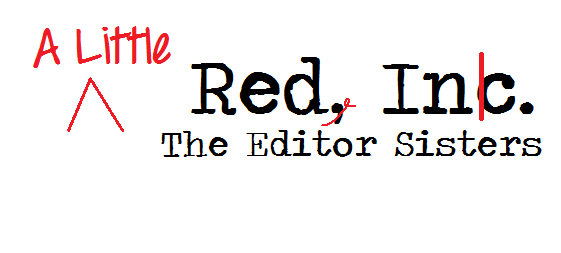

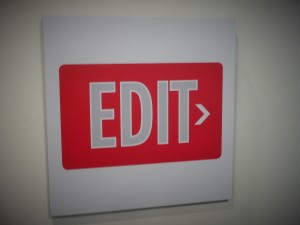
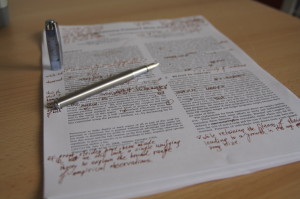

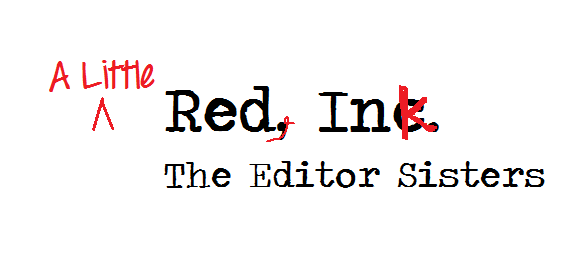
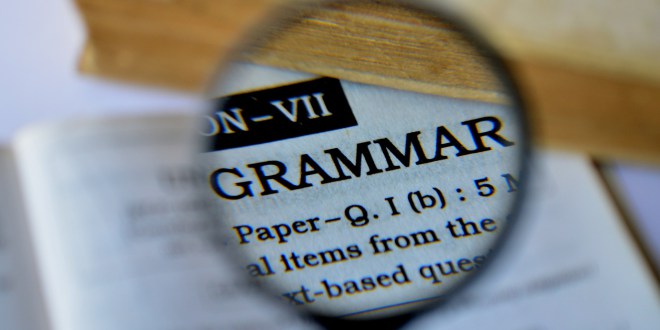


2 Comments
Ah yes, I know a rather clever editor. I’m so glad you touched on this. Editors rock!
Why thank you, you clever gent.